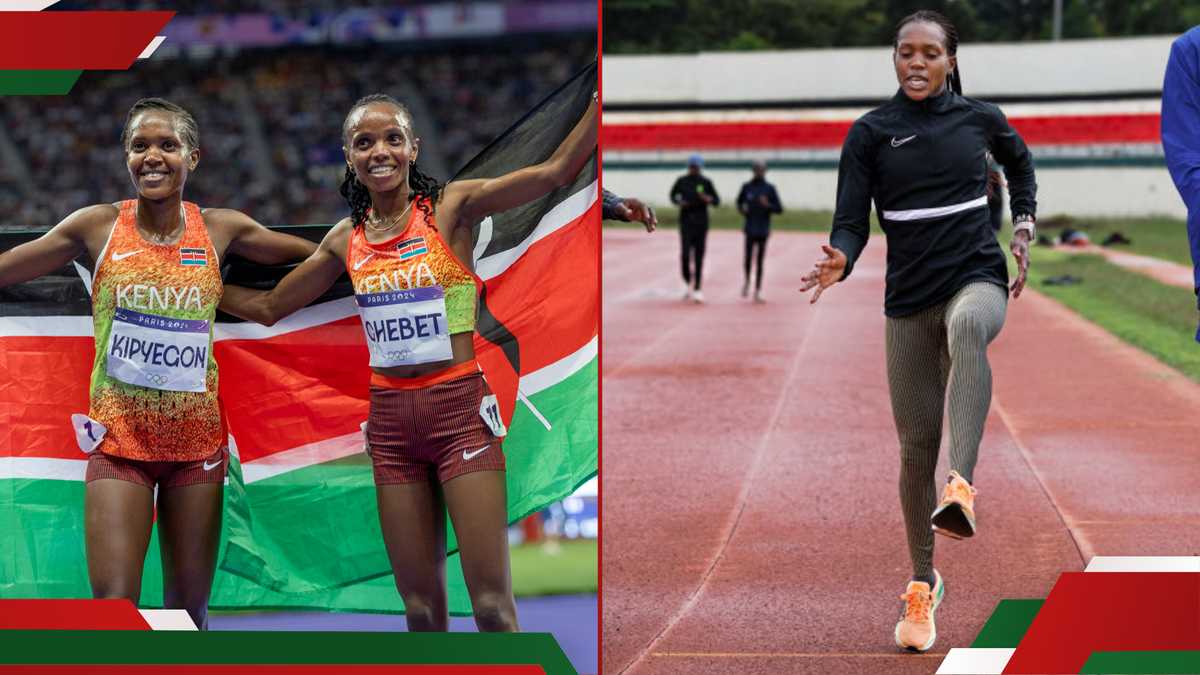Kenyan Athletes Voice Concerns Over Training Facilities
Faith Kipyegon and Beatrice Chebet have raised significant concerns regarding the lack of quality and adequate training facilities for Kenyan athletes. The two athletes, who recently made history at the Prefontaine Classic in Eugene, returned to Kenya and used their platform to highlight the challenges they face in their training environments.
Kipchoge Keino Stadium, a key training venue for many of Kenya’s top athletes, has been under renovation for years. This has led to frustration among elite athletes, including Kipyegon and Chebet, who train in the Rift Valley region around Eldoret. The stadium, which has historically served as a crucial facility for track and field athletes, remains closed, affecting the preparation of athletes like Kipyegon, who was aiming to break the four-minute mile barrier.
A Historic Performance in Eugene
At the 50th Prefontaine Classic, Kipyegon and Chebet delivered exceptional performances that captured global attention. Chebet set a new world record in the 5000m with a time of 13:58.06, becoming the first woman to break the 14-minute barrier in that distance. Her victory came after a dramatic final 200 meters where she overtook Gudaf Tsegay, showcasing her incredible endurance and speed.
Kipyegon also made headlines by lowering her own world record in the women’s 1500m. She achieved a time of 3:48.32, improving upon her previous record of 3:48.68. This marks her third world record in the 1500m, solidifying her status as one of the greatest middle-distance runners of all time.
Together, Kipyegon and Chebet now hold a combined five world records. Chebet previously broke the 10,000m and 5km world records, while Kipyegon holds the mile record. Their achievements have not only brought international recognition but also highlighted the need for better infrastructure to support Kenyan athletes.
Addressing the Challenges
Upon returning to Kenya, Kipyegon and Chebet were welcomed as heroes and had the opportunity to speak directly with Sports Cabinet Secretary Salim Mvurya. In a press conference, they addressed the inadequacies of the training facilities available to them.
Kipyegon expressed her disappointment with the state of Kipchoge Keino Stadium, which was closed during her preparations for the Breaking4 attempt. “My preparations have been challenging, particularly regarding training. To become the first woman to run a sub-four-minute mile, I went through a lot,” she said. She emphasized the need for the stadium to be renovated to benefit both current and future athletes.
Chebet echoed these sentiments, stating that athletes endure difficult conditions and that the facilities are not always up to standard. “We are not asking for much, just adequate training facilities,” she added.
Former world champion Milcah Chemos also shared her concerns about the lack of proper training facilities in Kenya. “We don’t have those facilities in Kenya. You can imagine the struggle. They are training on the road, and then Kenyans expect them to perform well, and we have not supported them with facilities. There are no facilities, especially for middle and long-distance athletes. We should not demand a lot from them,” she said.
Looking Ahead
After their record-breaking performances, Kipyegon and Chebet will focus on recovery before preparing for the World Athletics Championships in Tokyo in September. Kipyegon is set to compete in the 3000m at the Diamond League in Silesia, Poland, on August 16. Chebet, who won Olympic gold in the 5000m and 10,000m, will likely participate in one or two races before heading to Tokyo.
In addition to their athletic achievements, the Kenyan government has recognized their success by awarding them substantial financial rewards. Both athletes will receive KSh 5 million each, adding to the tens of millions they earned from the Diamond League and the Olympics in Paris. This financial support underscores the importance of their contributions to Kenyan sports and highlights the need for continued investment in training infrastructure.







